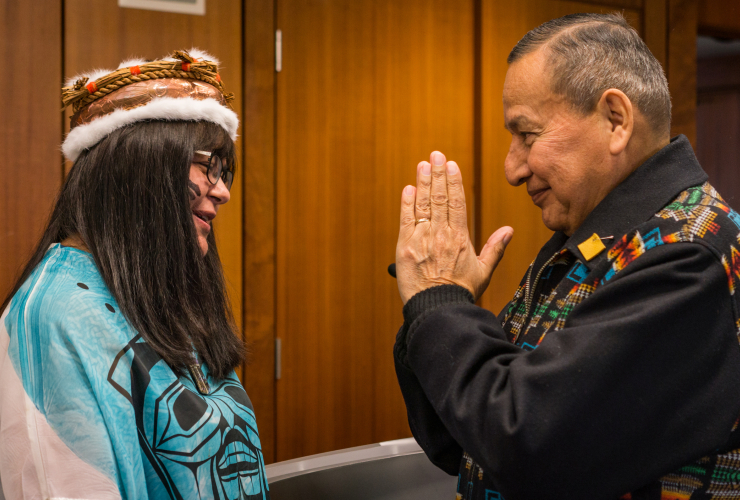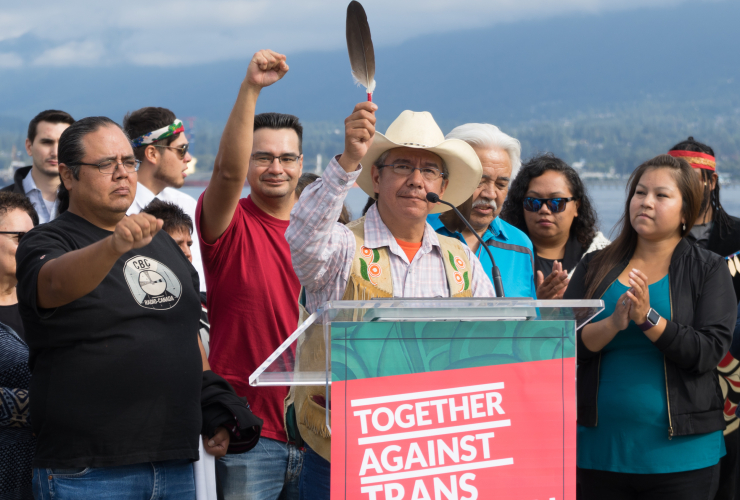The Nisga’a Nation is a self-governing Indigenous Nation in Northwestern, B.C., near the tip of the Alaskan panhandle. We have a history of being the strongest fighters for Indigenous rights and title. We fought at a time when most First Nations did not support our ability to prove our rights and title through the courts. We were the first Nation to sign a modern treaty with Canada, which signalled the end of our relationship with the archaic Indian Act and put us on the path to true self-determination and self-governance.
An indicator of any successful self-reliant community would be its ability to generate a sustainable economy and create jobs for its residents. Part of the current struggle that Nisga’a face is the separation between governance and business/economic development. Entrepreneurial Nisga’a are unable to create businesses without significant red tape from our Nisga’a Lisims bureaucracy, thus denying our ability to start a business without the control of Nisga’a Lisims Government.
This onerous business environment is the result of the Nisga’a leadership at the helm, who have limited real-world business experience and education, and as a consequence struggle in developing a viable and sustainable economic base for our long-term prosperity. This, despite having had years and countless millions of dollars to create and build sustainable industries in the Nass — that are not reliant on short-term resource extraction.
Right now extraction industries seem to be the main game in town knocking at our door with various "economic development" proposals. So much so, that we’ve even entertained the idea of allowing LNG pipelines through our territory — which would go right through our ancestral burial grounds within the Nisga’a Memorial Lava Bed Park. Some Nisga’a support that proposal as they are desperate for the short-term jobs that it would bring. What those jobs would be and if they would be available to the average Nisga’a who applied though is still unclear.
But what I’ve been hearing lately is that elected Nisga’a leaders do not support Bill C-48, which is a proposed ban on oil tankers along B.C.’s North Coast, and that they have a desire to build a shipping port and a pipeline for the export of crude oil — which is news to me as a Nisga’a citizen. This infrastructure development and the imminent spills that will occur could decimate our oolichan runs, salmon habitats, and in turn destroy a culture that centres on our seasonal fisheries and harvesting. We are the last Indigenous Nation with a stable oolichan run — something that perhaps we take for granted. I would hate to see this lost to the younger generations, my nieces, nephews, all my relations.
Now the Canadian Senate is debating amendments to Bill C-48, which include the addition of an “Oil Tanker Corridor” within Nisga’a territory and along the North Coast. Senators say they support Nisga’a self-determination and do not want to infringe on our treaty right to create an oil-based industry in our territories. I find it ironic and hypocritical that my Nisga’a president is admonishing the federal government for their lack of consultation with the Nisga’a on the effects of Bill C-48, as the Nisga’a people were never engaged or consulted by our own Nisga’a government leaders on whether or not we accept a sunsetting, harmful oil industry into our homelands.
I and many other Nisga’a people are shocked to hear support for such initiatives because the majority of our people do not ever want to see oil exported through our territories, be it through a pipeline, a corridor, or a shipping port.
It’s unfortunate that poor communication, consultation, and engagement with Indigenous communities can create such division when it comes to major resource-extraction projects getting off the ground. But it is not just the responsibility of the federal or provincial governments to consult accordingly, it is also up to our own First Nations governments to consult their own people accordingly — before falsely representing their support for such controversial initiatives. But if we want to be self-governing we need to act like it.
We, the Nisga’a people, will always find a way to have our voices heard. And we say no oil in Nisga’a territory — not now, not ever.







Comments